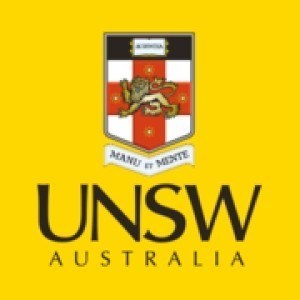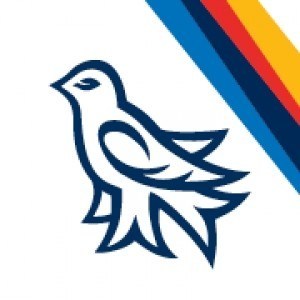Photos of university / #ucl
The MSc in Linguistics with a specialisation in Pragmatics at University College London offers students a comprehensive and in-depth exploration of the core principles and advanced concepts within the field of linguistics, with a particular focus on pragmatics. This programme is designed for individuals interested in understanding how language functions in real-world contexts, how speakers use language to achieve communicative goals, and how meaning is constructed, interpreted, and negotiated in everyday interactions. Students will engage with a broad range of topics, including inference, implicature, speech acts, deixis, politeness, and contextual factors influencing language use.
The curriculum combines theoretical foundations with empirical research methods, enabling students to critically analyze language data and develop practical skills applicable in academia, linguistics research, and applied fields such as linguistics consultancy, artificial intelligence, and intercultural communication. Throughout the programme, students will attend lectures, seminars, and workshops led by leading experts in pragmatics and related areas of linguistics. They will also undertake independent research projects, culminating in a dissertation that demonstrates their ability to apply theoretical knowledge to real-world language phenomena.
This programme emphasizes the importance of interdisciplinary approaches, integrating insights from philosophy, psychology, anthropology, and cognitive science to enrich understanding of pragmatic aspects of language. The teaching staff are active researchers who contribute to ongoing developments in the discipline, ensuring the curriculum remains current and relevant. Students will have access to UCL’s extensive resources, including specialized libraries, research centers, and language laboratories.
Graduates of this programme will be well-equipped for careers in academia, research, language technology development, translation, lexicography, and communication consultancy. They will possess critical thinking, analytical skills, and a deep understanding of how pragmatics influences human interaction, making them valuable assets in diverse professional contexts. The MSc in Linguistics with a specialisation in Pragmatics at UCL is an ideal choice for those passionate about understanding the intricacies of language use and eager to contribute to advancing knowledge in this dynamic field.
Students gain knowledge and understanding of current research in pragmatics and are prepared for independent research. On completion of the programme, they will be able to formulate appropriate research questions, find and evaluate relevant literature, develop and test new hypotheses, and produce cogent, structured and professionally presented reports.
Students undertake modules to the value of 180 credits.
The programme consists of two obligatory core modules (30 credits), four pathway modules (60 credits), two optional modules (30 credits) and a dissertation/report (60 credits).
Core modules
- Compulsory
- Pragmatics Research Seminar
- Dissertation in Linguistics - Advanced Level
- Pathway modules (students select two from the list below)
- Pragmatic Theory
- Issues in Pragmatics
- Semantic-Pragmatic Development
- In conjunction with the Programme Co-ordinator, students select two from a list which includes:
- Topics in Semantics and Pragmatics
- Advanced Semantic Theory
- Interfaces
- Semantics Research Seminar
Optional modules
A further three modules are selected from the list of optional modules below:
- Syntax 1
- Sociolinguistics
- The Linguistics of Sign Languages
- Phonetic Theory
- Animal Communication and Human Language
- Language Acquisition
- Neurolinguistics
- Morphology
- Pragmatic Theory
- Issues in Pragmatics
- Readings in Syntax
- Syntax
- Advanced Phonological Theory
- Intermediate Phonetics and Phonology
- Advanced Semantic Theory
- Intermediate Generative Grammar
- Current Issues in Syntax
- Stuttering
- Or any statistical training taken outside the department
- Or any statistical training taken outside the department
Dissertation/report
All students undertake an independent research project which culminates in a dissertation of 10,000 words.
Teaching and learning
The teaching and assessment of this programme is strongly research-oriented. It is delivered through a combination of lectures, small-group teaching and a virtual learning environment. Some modules also involve workshops or practical classes. Assessment is through take-home and unseen examination, essays, presentations, assignments and the dissertation.
Normally a minimum of an upper second-class Bachelor's degree from a UK university or an overseas qualification of an equivalent standard is required.
The financing of the Linguistics with a specialisation in Pragmatics program at University College London is primarily supported through a combination of tuition fees, government funding, scholarships, and bursaries. Tuition fees vary depending on the student's residency status, with UK and EU students paying a different rate compared to international students. The program offers a range of scholarships and financial aid options to assist eligible students in covering tuition costs and living expenses. Students are encouraged to apply for institutional scholarships such as the UCL Global Excellence Scholarship, which recognizes academic merit and provides substantial financial support. Additionally, government grants and loans may be available for eligible UK and EU students, helping to alleviate the financial burden of higher education. International students are advised to explore scholarship opportunities provided by their home governments or other external funding organizations. Part-time work is also a common means of financing studies, with the university facilitating employment opportunities on or near campus. The university's dedicated financial aid office provides comprehensive guidance on available funding sources, application procedures, and eligibility criteria. It is recommended that students begin their financial planning early to ensure they meet all deadlines and requirements. The program's cost of living varies depending on the student's lifestyle and accommodation choices, with UCL students typically budgeting for accommodation, food, transportation, and study materials. The university offers various accommodation options, some of which include financial support or priority for certain student categories. Moreover, potential students are encouraged to review external funding bodies that support postgraduate linguistics studies. Overall, the financing of the Linguistics with a specialisation in Pragmatics program is designed to be as accessible as possible through a range of funding opportunities, ensuring talented students from diverse backgrounds can undertake their studies without undue financial hardship.
The Linguistics program with a specialization in Pragmatics at University College London (UCL) offers students an in-depth exploration of the study of language use in social contexts. This program combines theoretical and empirical approaches to understanding how language functions in communication, emphasizing the pragmatic aspects that influence meaning, speaker intention, context, and social interaction. Students will engage with core areas such as speech acts, implicature, politeness, deixis, and conversational maxims, developing a comprehensive understanding of how language varies and adapts across different social settings and cultures.
Throughout the course, students have the opportunity to analyze real-life communication scenarios, utilizing linguistic data to examine how context impacts meaning. The programme integrates insights from cognitive science, sociology, and anthropology, providing a multidisciplinary perspective on pragmatics. Practical skills are also emphasized, with students participating in data collection, analysis, and the use of software tools for linguistic research. This focus prepares graduates for careers in areas such as language technology, artificial intelligence, translation, intercultural communication, and academic research.
The curriculum is designed to foster critical thinking and analytical skills, with modules covering topics like discourse analysis, intercultural pragmatics, and the relationship between language and society. UCL's renowned faculty members, many of whom are leading experts in pragmatics and linguistics, mentor students throughout their studies, encouraging independent research and innovative thinking. The program often includes opportunities for research projects, seminars, and conferences, enabling students to engage with current developments and contribute to ongoing scholarly conversations.
Graduates of this program will possess advanced knowledge of linguistic theories and practical expertise in analyzing language in context. They will be well-equipped to understand and interpret complex communicative phenomena, making them valuable in diverse professional settings that require nuanced understanding of language dynamics. The program’s focus on empirical methods and theoretical frameworks ensures students are prepared for both academic pursuits and practical applications in industry. Overall, the Linguistics with a specialization in Pragmatics at UCL offers a rigorous, comprehensive education that bridges linguistic theory with real-world communication challenges.









